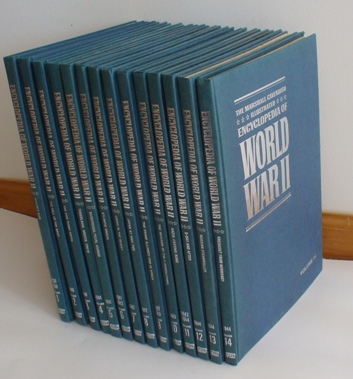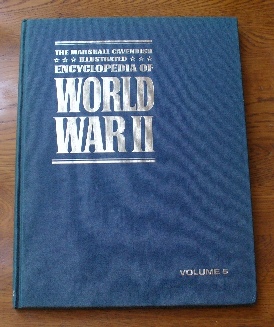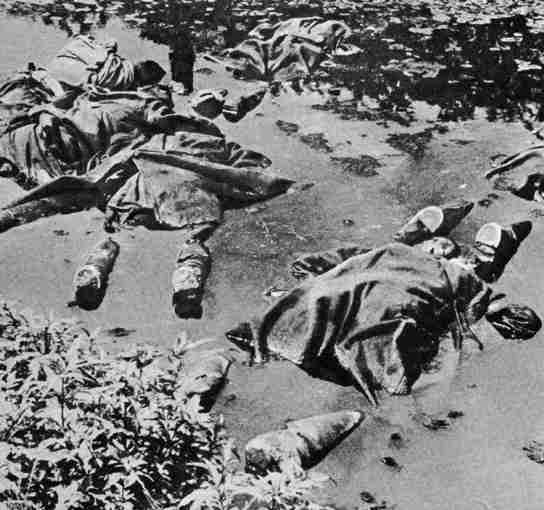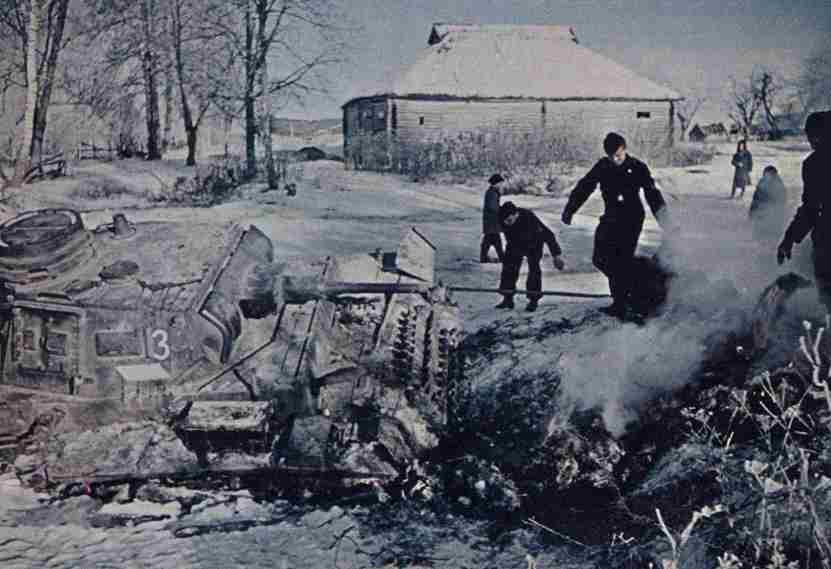[ Home ] [ Library ] [ Index ] [ Maps ] [ Links ] [ Search ] [ Email ]
|
In 1941, true to their ancient tradition to face the foreign intruder, no matter how powerful he may be, the Serbian people flooded the streets of their towns to express outrage at mixed-ethnicity government of Yugoslavia that just surrendered to Hitler's ultimatums. The Serbs chanted "Better grave than slave! Better war than pact [with Hitler]!" The date was March 27, 1941 and Nazis were at the very peek of their power. The ensuing events will show that the Serbian bravery was of pivotal importance in allies victory over Nazism. In 1991, some 50 years later, the books we are quoting here were slowly collecting dust in Western libraries. At that time the Western governments decided to dismantle and conquer Yugoslavia. The books were soon to be thrown from the libraries. They were, supposedly, too old. But you may have some on your shelf. Feel free to check our quotes. Serbian bravery
|
|
[O]n March 27 [1941] in the
early morning hours, the SERB PEOPLE
and parts of the army who remonstrated against the surrender
to the FASCIST PRESSURE, OVERTHREW THE GOVERNMENT...
King Peter II assumed the government amid UNPRECEDENTED
SCENES OF PUBLIC REJOICING ON THE PART OF SERB PEOPLE, WHO SAW THEIR LIBERTY
AND THEIR HONOUR SAVED... THERE WAS NO DOUBT THAT THE COUP WAS A RESULT
OF AN OVERWHELMING POPULAR DETERMINATION AMONG THE SERBS, A REAL POPULAR
UPRISING... Few revolutions have gone more smoothly. There was no bloodshed... The plan had been made and executed by a close band of Serb nationalist officers who had identified themselves with the true public mood. Their action let loose an outburst of popular enthusiasm. The streets of Belgrade were soon thronged with Serbs, chanting, "Rather war than the pact; rather death than slavery." Winston S. Churchill, "MEMOIRS of the Second World War, an abridgment of the six volumes of The Second World War", page 424, Bonanza Books, New York, 1978 The Serbs had flung their defiance at Hitler at the moment of his greatest power... Hitler personally felt a violent hatred for the Serbs, possibly derived from his Austrian childhood and undoubtedly inflamed by the March coup. The above quote is from: "The Holocaust, The destruction of European Jewry 1933 - 1945" by Nora Levin, The Schocken Books, New York Edition 1973 The coup in Belgrade threw Adolf Hitler into one of the wildest rages of his entire life. He took it as a personal affront and in his fury made sudden decisions which would prove utterly dissastrous to the fortunes of the Third Reich.... Hitler announced the most fateful decision of all. "The beginninig of the Barbarossa operation [attack on Russia]," he told his generals, "will have to be postponed up to four weeks." (It had originally been set for May 15 in the directive of December 18, 1940). This postponment of the attack on Russia in order that the Nazi warlord might vent his personal spite against a small Balkan country which had dared to defy him was probably the most catastrophic single decision in Hitler's career... [Hitler's generals] were to recall it with deep bitterness but also with more understanding of its consequences than they showed at the moment of its making, when later the deep snow and subzero temperatures of Russia hit them three of four weeks short of what they thought they needed for final victory. For ever afterward they and their fellow generals would blame that hastly, ill-advised decision of vain and infuriated man for all the disasters that ensued. The above are excerpts from: "The Rise and Fall of the Third Reich" A History of Nazi Germany by William L. Shirer Page 824 Simon and Schuster, New York, 1960 President Franklin Roosevelt said that March 27 (1941) was "THE TURNING POINT IN HITLER'S FATE." Hitler had planned to invade the Soviet Union on May 15. Instead, he had to wait until June 22, after he had "destroyed" Yugoslavia and Greece... The above quote is from: The World Book Encyclopedia, Edition 1958, Vol 18, Entry: Yugoslavia, page 8988 |
Excerpts from:
|
The Marshall Cavendish Illustrated Encyclopedia of World War II,
Volume 5, New York, 1972
Based on the original text by Lieutenant Colonel Eddy Bauer
Consultant Editor Brigadier General James L. Collins, Jr.,
USA Chief of Military History, Department of the Army
Pages 587 (quote):
Between June 22 [when Germans attacked Russia - being late as Hitler wanted to exact his revenge on the Serbs first] and December 6, 1941, Soviet losses in prisoners alone were of the order of 2,800,000 officers, N.C.O.s, and men. From Brest-Litovsk to the suburbs of Moscow, the Germans had covered a distance equivalent to that between London and Prague...(End quote.)
...but...
Pages 565-568 (quote):
The circumstances came to the aid of the defenders of Moscow [in 1941].(End quote.)The magnificent weather which favoured the offensive at dawn on October 2 was followed, a few days later, by a long period of rain, sometimes mixed with snow. From October 20 onward, the German armies were literally wading in the mud of the steppes which, in Poland at the end of December 1806, Napoleon had described as the "fifth element". Off the roads, the terrain was generally impassible and, with rare exceptions, the roads themselves were dreadful sloughs where vehicles were seen to disappear completely. All the rivers were in flood, which made it a long and difficult operation to repair the countless bridges that the Russian had destroyed in their retreat.
In these conditions, the motorised supply columns were able to cover only 20 miles a day, or even less...
[T]here is abundant photographic evidence to illustrate this phase of the campaign and it shows mud up to the hubs of German vehicles, up to the bellies of their horses, and over the knees of their soldiers. This speaks for itself...
The persuing Germans were... getting further from their logistic bases every day... [I]n that season of torrential rain, the [German aviation] Luftwaffe was able to fly very few missions in support of the ground troops...
|
Pages 569, 570 (quote):
As autumn wore on, the ground hardened with frost, to the satisfaction of the German generals, who thought that they could get the offensive going again at the speed it had reached at the beginning of October. But the drop of temperature was far greater than was tolerable for the tasks required of Army Group "Centre". On November 12, the temperature was -12 degrees Centigrade, the wollowing day -13 degrees and, on December 4, the mercury fell to -35 degrees [!!!] and a strong north-east wind made the biting cold even more painful. Winter equipment was ordered too late... the equipment was delayed on its way to the front by the effect of the cold on German locomotives... Badly worn by five months in the field, the clothing of the German soldier was, in any case, not at all suitable for the rigors of the Russian winter...(End quote.)For lack of anti-freeze, [German] engines had to be left running all the time, which meant a considerable increase in fuel consumption. Crampons for the tank tracks had not yet reached the front, and the tracks were too narrow to carry the tanks over the deep snow. Automatic arms jammed during combat and guns did not recoil properly after firing. Parts made of artificial rubber (Buna) became friable and took on the consistency of wood. Lastly, the army's livestock suffered terribly. The German horse does not have the same resistance to the harsh Russian climate as his Russian cousin who is accustomed to scratching out grass with his hoof.
Since the beginning of November, Hitler had been forced to recognise that the final objectives of Operation "Barbarossa" would not be achieved by the end of the year. He was thus compelled to fall back on a far more modest programme...
Pages 571, 572 (quote):
In carrying his task, [German general] Bock displayed energy that [Hitler' Minister of War] Keitel describes in his diary as "incredible". The fact remains, nevertheless, that by December 5, 1941, his army group had reached, in the words of the famous military theoretician Karl von Clausewitz, its "limit of strategic consumption". Any fresh movement forward was out of the question...(End quote.)[A] young artillery officer in the 2nd Motorised Division Das Reich, belonging to the Waffen-SS, wrote to his mother: "We only needed another eight miles to get the capital within gun range - but we just could not make it."
The view of this junior officer is in accord with that expressed by [German] Colonel-General Guderian, who wrote to his wife on November 9: "We have seriously underestimated the Russians, the extent of the country and the treachery of the climate. This is revenge of reality."
Page 584: (quote):
Guderian gives us the following picture of the winter battle. He noted it at Tula, [Russia] but it is true for the whole front:(End quote.)"On the actual day of the offensive, the thermometer fell from -20 to -40 [!!!] degrees. The suffering of the troops were ghastly. All the automatic arms ceased to work because the oil in them froze. On the afternoon of the 5th [of December] all the armies called a spontaneous halt."
"There is nothing more dramatic in military history than the stunning assault of the could on the German Army. The men had greatcoats and jackboots. The only additional clothing they had received consisted of a scarf and pair of gloves. In the rear, the locomotives had seized up with cold. In the line, weapons were unserviceable and, according to General Schaal, the tank motors had to be warmed up to 12 hours before the machines could get going. One hideous detail is that many men, while satisfying the calls of nature, died when their anuses froze."
On December 20, General Guderian left for the Fuhrer's H.Q. to try and obtain his consent to cease operations. All he got were renewed orders to attack:
So greatly had the cold disorganised the army that the Fuhrer's orders could not be obeyed... Our casualties were enormous, as the slightest wound meant death. The battle fell silent everywhere, without orders, and in spite of the efforts of the officers."
...And then the Russians started counter-attack... A photograph on page 584 of the book shows Russian peasant women kissing Russian soldiers. The caption says. "The first liberators of the war. Red Army soldiers are welcomed in a village they have just recaptured on the Moscow front."
Not true. The brave and audacious Serbs liberated most of their lands at least three months earlier.
Encyclopedia Britannica, edition 1971 (throung 1989), Volume 23, page 921 entry: Yugoslavia, 6. WWII says (quote):
In Serbia itself a force led by the regular army colonel, Dragoijub (Draza) Mihajlovic (q.v.), fought Germans in the early summer [1941]. After Hitler attacked the U.S.S.R., the Yugoslav Communists, who had already made military preparations, took the field IN SERBIA AND MONTENEGRO. By September [1941] A LARGE PART of both these lands was LIBERATED by these two forces...(End quote.)
To see a photograph published in Time-Life Books, "Partisans and Guerrillas" (page 85) showing Serbs leading a long column of Nazi German prisoners of war in autimn 1941, through central Serbia town of Uzice, click on this link.
The Time-Life book, page 77, states (quote):
By late September of 1941, the battle lines in Yugoslavia converged in Serbia, the hotbed of resistance. The Chetniks and the Partisans... had seized control of nearly two thirds of the countryside, and Germans were bringing in reinforcements to put down the insurrection.(End quote.)
|
What would we not have saved by way
of aid to Italy for her senseless Balkan war? In all
probability there would not have been any uprising in Yugoslavia
in an attempt to force her entry into the war on the side of
the enemies of the Axis, just to oblige Britain and the Soviet
Union. How differently things
would then have looked in Russia in 1941: we would have been in a
far stronger position, and above all we should not have lost those
two months. Just imagine: we would not just have frozen to a standstill
in the snow and ice, with temperatures of minus fourty-five degrees
just twenty miles outside Moscow, a city hopelessly encircled
from the north, west and south, at the end of that November; we should
have had two clear months before that infernal cold weather closed in -
and there was nothing like it in the winters that followed anyway! Stein and Day Publishers, New York, first published in 1966, page 131 In a war aimed just as much at America as at Europe, the Serbs gave us without price the three most vital months in the annals of civilization. Serbia at the end would present no bill - that I knew - because the Serbs are like that. But history would write down her figures and add them up. Would the final sum in America's account with little Serbia be written in black or - red? I wondered. A gentlemen's agreement is so agreeable gently to forget! The above quote is from: The Serbs choose war, by Ruth Mitchell Garden City, New York, edition 1943, page 83 |
The nine million strong Serbian people will pay grave price for their bravery. More than million Serbs, men, women and children will perish in WWII as result of persistent, brave resistance of the Serbian people. Many will perish as result of Nazi rage.
Croats, Bosnian Muslims and Kosovo Albanians will gladly and en masse join the Nazis. They perpetrated unspeakable genocide wherever the Serbian population was undefended. Some 50 years later the "grateful" West will call these Nazi collaborators - "democratic and freedom loving." The Serbs will be called (no less!) than - Nazis. The West would express gratitude for Serbian selfless contribution in fighting Nazism by unleashing terror bombing on the Serbian towns, cleansing millions of Serbian survivors from their homes and by dynamiting ancient Serbian churches.
Such is the state of Western morality.
 Back to:
Back to:
|
Where am I? PATH:
|
The truth belongs to us all.
Feel free to download, copy and redistribute.



